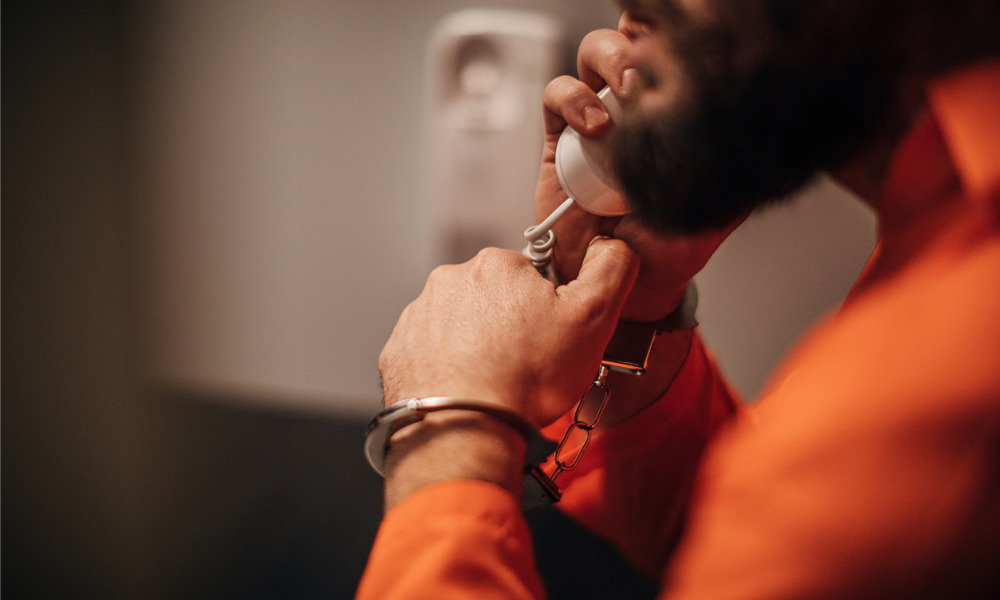Recordings were ruled not for private use

The sharing of child pornography through telephone voicemail messages does not fall within the private use exception, the Saskatchewan Court of Appeal has ruled.
In R v. Fisher, 2022 SKCA 78, Gabriel Fisher recorded and accessed voicemail messages on an interactive telephone chat service that permits users to live chat with other users, leave voicemail messages, and access voicemail messages left by other users. Fisher was a resident at Oksana Centre, a federal community correctional centre, pursuant to the terms of a long-term supervision order. The staff at the facility discovered that Fisher had placed 346 phone calls to the chat service that described sexual activity with children, over a period of 46 days.
Fisher was bound by the terms of an order of prohibition which forbade him from using a telephone to get into a digital network to access child pornography. As a result of the phone calls he made, Fisher was charged with making, possessing and accessing child pornography, as well as breaching the order of prohibition.
Private use exception does not apply
Fisher argued that the phone calls were private conversations between two consenting adults and the government had no justification in censoring them. He asserted that he had an expectation of privacy for the messages he left and accessed, particularly because his account was password protected. He also contended that absent any intention to share the recordings beyond the target recipient, the exchanges should not be criminalized.
In R v. Sharpe, 2001 SCC 2, the Supreme Court of Canada ruled that a risk of harm to children arises when child pornography is shared beyond the single individual who created it. While criminalizing such conduct infringes on an individual’s right to free expression, the highest court justified the infringement by reasoning that “any sharing creates a risk of harm to children at a level which Canadian society does not tolerate.”
The trial court noted that the fact that the messages were recorded changed them from a private conversation between two individuals to something inherently more dangerous, because recorded messages can be repeatedly reviewed and disseminated by others. The appeal court agreed and further reiterated that possession of child pornography harms children through cognitive distortions that normalize sex with children, the fueling of fantasies that may incite sexual abuse of children, its role in grooming potential victims, and the actual abuse of real children who are used to create the material.
The court asserted that these same risks were created by Fisher’s audio recordings. The court emphasized three necessary elements for the private use exception to apply. The recording must depict lawful sexual activity, the persons depicted must consent to recording, and the recording must be held for private use.
The court found that the activity described in the recordings was not lawful sexual conduct. The court said, “the recorded descriptions of illegal sexual acts with children in this matter do not have any expressive value beyond that contained in the expression of an abhorrent idea.”
Further, the recordings were made by the users of the chat service for the very purpose of sharing they were not merely a tool used to facilitate private discussions. Once recorded to voicemail, Fisher lost control over whether they could be listened to repeatedly by anyone who was granted access. The messages could also be duplicated and further disseminated, the court said.
The court said, “Mr. Fisher remains free to have thoughts about illegal sexual activities, and to record them for completely private use, but the moment those recordings are shared, the risk of harm becomes unacceptable when balanced against his Charter rights.”
No breach of prohibition order
The trial judge ruled that Fisher breached the order of prohibition because the chat service was a chatroom which Fisher accessed using a telephone in order to access child pornography. The appeal court noted that this interpretation would be correct if the order prohibited Fisher from using a telephone to access child pornography or related chat rooms. However, the appeal court found that the order unambiguously forbade Fisher from using a telecommunications device to access the internet or a digital network in order to access child pornography or such chat rooms.
The appeal court pointed out that the uncontroverted evidence at trial showed that the trial judge had accepted that the chat service was not a digital network. Based on the accepted evidence, the appeal court ruled that Fisher did not breach the order of prohibition because he did not access the internet or a digital network.
In the end, the appeal court affirmed Fisher’s convictions for possessing, accessing, and making child pornography, but set aside Fisher’s conviction of breaching the order of prohibition.










